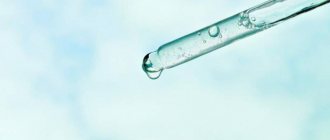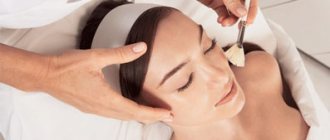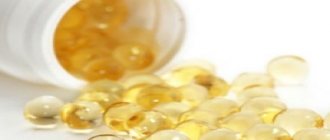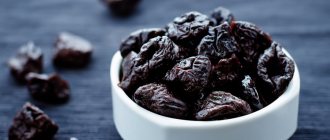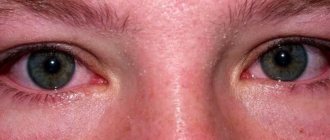Everyone looks forward to warm summer days, but it is so unpleasant when the impression of this period is overshadowed by allergic reactions. Despite the fact that most allergy sufferers consider spring to be the most difficult time, for many allergies become problematic in August. It is during this hot month that hay fever cannot be ruled out. This is an allergy to the pollen of certain plants, of which there can be a lot in the second half of summer.
The problem is that some people who usually do not suffer from allergies begin to experience all the unpleasant symptoms of hay fever while on vacation. Therefore, before you go on a trip, you should carefully study the situation in a particular area. It is better to know in advance what to prepare for, and an even better decision would be to refuse to travel to places where there are many plants that cause allergies.
But if negative reactions nevertheless begin to manifest themselves, it is imperative to take appropriate measures. If you do not pay attention to the signs of hay fever, allergies can cause complications, which can be very difficult to get rid of.
Allergy symptoms in August
Of all the things that bloom in August, allergies are most often caused by pollen. The signs of the problem in this case will be very similar to the development of a cold. Initially, a runny nose and watery eyes may appear. If no measures are taken at this stage, swelling and itching will occur in the future.
Important! It is imperative to treat an allergic reaction. Otherwise, the problem may become chronic.
In this case, treatment of hay fever will be extremely difficult, and unpleasant symptoms will begin to occur more often.
The severity of the allergic reaction depends on the individual characteristics of the human body. For some, an allergy to August pollen manifests itself only in the form of a slight runny nose and red eyes. But some have to deal with high fever, shortness of breath, redness of the skin and even attacks of suffocation. It should also be noted that allergy symptoms can lead to complications. If the patient's eyes become very red, this can develop into conjunctivitis, and a slight runny nose over time develops into full-fledged rhinitis.
Therefore, it is necessary to treat the symptoms of hay fever in a timely manner. But the best solution is to avoid the sources of the allergic reaction. To do this, it is necessary to determine which plant, blooming in August, will provoke unpleasant symptoms.
Dahlias
It’s hard to imagine a summer garden without these colorful plants. Flowers of all imaginable shades, simple and spherical shapes, different sizes seem like exotic aliens requiring painstaking care. But even a novice gardener can cope with growing dahlias. It is enough to know that their tubers are planted in the spring, and dug up in the fall and stored in the cellar. Plants love warmth and are afraid of excessive watering; the soil under them should be fertilized in the spring. They are one of those plants whose flowers bloom in August, but certain varieties allow you to decorate the garden with dahlias from June to mid-September.
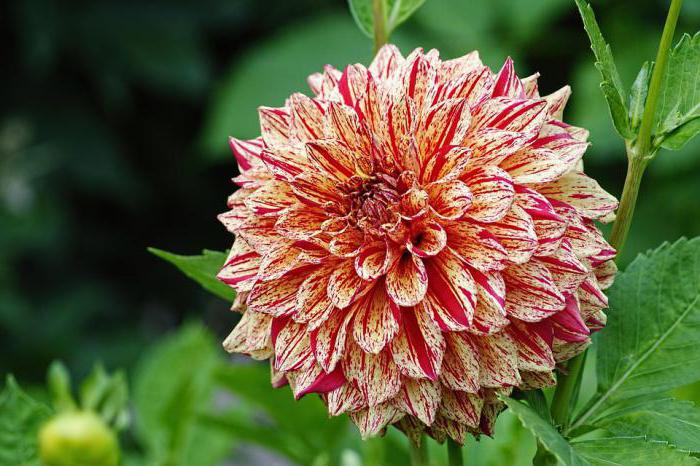
Pollen-allergen
In the second half of summer, not many plants bloom, so finding out which one a person is allergic to is quite simple. To find out which plants bloom and spread pollen, you should take a flowering calendar for a specific region. In most of the country, allergy sufferers are concerned about wormwood and nettle pollen in August. But the most serious allergen is ragweed. This grass grows over large areas and often brings a lot of problems to those who vacation in the south, and especially in the countryside. It is ragweed that is considered the main cause of hay fever in the Russian Federation.
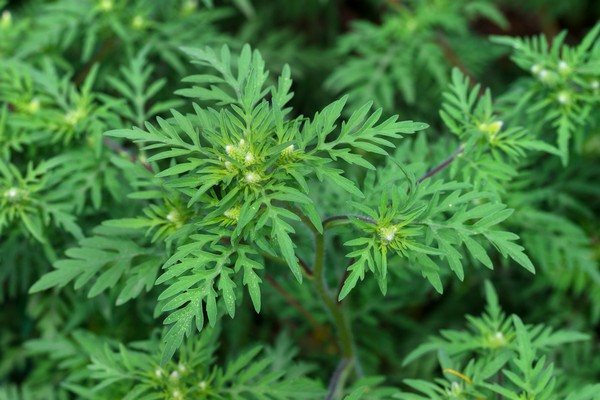
However, some people experience negative reactions for completely different reasons. Common plants such as immortelle, plantain, calendula and tansy may bloom in August. Despite all the benefits that can be obtained from these flowers, they are very unpleasant for people prone to allergies.
But it should also be noted that negative reactions in the body can appear not only due to pollen. And August is the ripening period for many fruits and berries that can cause allergies. Therefore, you need to be very careful with them. This is especially true for red foods, which are considered quite strong allergens. Often negative reactions from the body appear after eating early watermelons and melons. You need to choose these products very carefully.
An allergic reaction may appear at the end of August. During this period, garden plants begin to bloom. For many, hay fever is associated with asters, chrysanthemums and daisies. If it is revealed that these flowers are indeed the cause of the problem, it is better to remove them from the house flower bed, despite all their beauty.
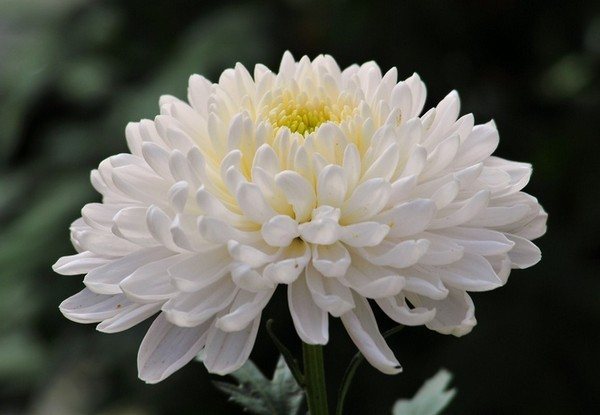
Moreover, we must not forget that towards the end of summer the rains begin. This provokes the development of certain microorganisms, including fungi and mold. It is imperative to get rid of this problem, otherwise the allergic reaction can be severe and lead to serious disruptions in the functioning of the body.
What to do
If patients develop allergies in August, then, of course, they should not wait for September, but begin timely and effective treatment. Now allergists have different techniques in their arsenal, so it is better not to get carried away with amateur medical activities, but to go to a knowledgeable specialist in time. What can the doctor prescribe?
Warning signs of airborne allergies. These symptoms are well known to many people. Sneezing, which is often accompanied by running or a stuffy nose. Cough and post-nasal drip. Itching of eyes, nose and throat. Allergic color changes.
Basic mechanisms of pathological reaction
An allergic reaction in a child is characterized by unrelenting inflammation of the nose, which causes a wrinkle on the nose. Conjunctivitis is an irritation of the membrane lining the eyelids, causing red, oval, swollen eyes and crusty eyelids. Options for Las Vegas residents with allergies.
- Antihistamines: clarotadine, cetirizine, ebastine, fexofenadine, clemastine, etc. (considered the main treatment, they suppress various variants of August allergies, but if you stop taking them during the flowering period of plants that are sources of allergenic pollen, then all symptoms will quickly return).
- Hormones: budesonide, beclomethasone, fluticasone in the form of sprays or drops.
- Leukotriene receptor antagonists: acolate, singular (well tolerated, moderately effective).
- Symptomatic drugs: ipratropium bromide, xylometazoline, ephedrine, etc. (relieve only certain manifestations of allergies).
- Allergen-specific immunotherapy (the optimal treatment method, during which, for a kind of immunity training, the patient is injected, dripped, or given in the form of a tablet “his” allergen in extremely small doses; but before this, a special examination is necessary to determine what exactly causes the existing allergy to flowering) .
Effective methods to combat summer allergies
If a person has an allergic reaction to foods, then the best solution is to simply eliminate them from their diet. But with pollen, things are more complicated, since it is almost impossible to completely eliminate the allergen from your life. If you do not take any measures against hay fever, serious complications are possible, for example, the simplest runny nose can eventually become bronchial asthma.
Drug treatment alone will not be enough. Allergy sufferers should follow several important rules that will allow them to feel normal in August. To do this, you can cover the windows with damp gauze. You should only go outside in the evening, when there is a minimum amount of pollen in the air. Walking after the rain will be very useful.

If a person has very severe symptoms of hay fever, it is worth going for the summer to those countries where the likelihood of an allergic reaction will be minimal. Experts recommend Greece, Spain and Italy for allergy sufferers, as the Mediterranean climate helps cleanse the respiratory tract and normalize the condition of those who are prone to allergies. If it is not possible to leave the country for a month, you should often humidify the air in the room and also use sea salt. It is useful for rinsing the nasal passages during periods of exacerbation of allergies.
2Fungal spores
Very often in August and early September you can encounter an allergy to fungus - in most cases, the danger is caused by mold fungi that affect the surface of the leaves. Leaves become infected with fungi when they begin to fall. Mold spores affect the body in the same way as flower pollen - you inhale allergens that settle in the throat, larynx and lungs.
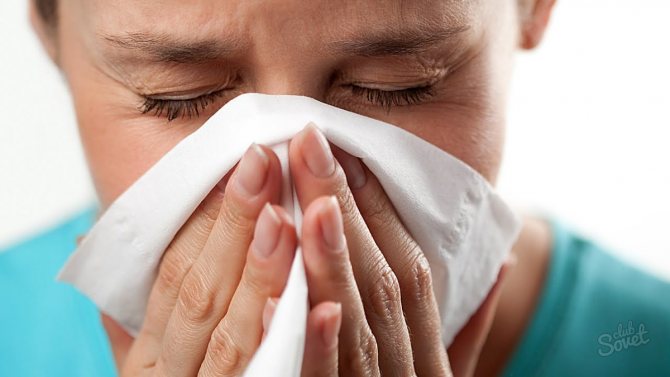
It would seem that such an allergy should worsen in the autumn, when the falling and rotting of leaves is especially active. However, the determining factor is weather conditions: in the fall it is often rainy outside and there is high humidity, so the spores settle on the ground. In dry August weather with strong winds, fungal spores are most likely to enter the respiratory tract.
Treatment with medications
A way out of the situation with severe allergies in August may be the use of medications. But they can only be prescribed by a specialist after examining the patient. Many medications that are used to treat allergies can quickly relieve all unpleasant symptoms and remove toxins accumulated in the body.
An immunologist deals with problems of this type. After examining the patient, the doctor may prescribe the drug Tavegil, Cetrin, Suprastin, etc. These drugs can quickly eliminate all unpleasant symptoms. But we must remember that if the allergen continues to affect the body, negative reactions will occur again.
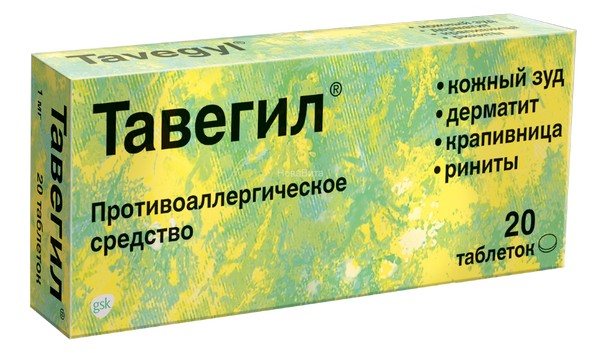
For some patients, specialists prescribe not only antihistamines, but also a special diet to strengthen the immune system and quickly remove toxins. Suitable products are selected individually for each allergy sufferer, depending on the severity of the disease. Those foods that can enhance negative reactions from the body must be excluded from the patient’s diet.
1Plant pollen
The last month of summer is characterized by dry, windy weather - it is under such conditions that pollen particles from plants irritate our respiratory tract most acutely. Pollen settles on the mucous membranes and provokes allergies. If you experience allergies in August, most likely the cause of your illness is not flowering trees, but meadow grasses. At the end of summer, the trees have already finished flowering, but nettle, wormwood, timothy, plantain and other herbs continue to bloom actively. In addition, allergies often occur to garden plants - especially to daisies, chrysanthemums and asters.
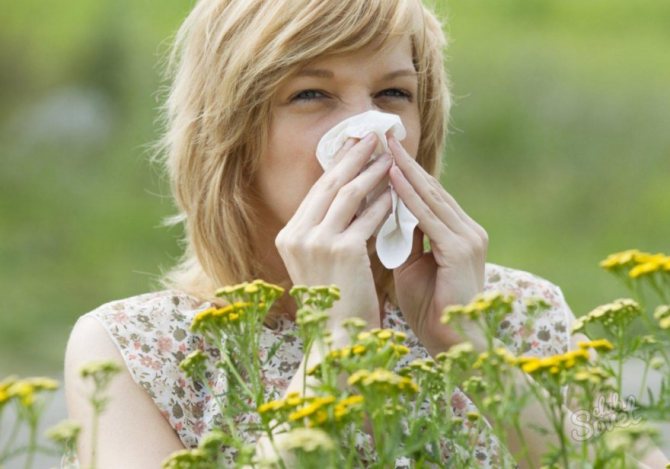
Many residents of megacities are surprised to encounter an allergy to pollen from meadow grasses and flowers while living in the city. However, it is worth considering that wind can transport pollen over very long distances. This leads to the fact that an allergy occurs, even if, it would seem, the allergen is very far away.
Allergy prevention
If a person is prone to allergic reactions, he should be especially careful. Most often, allergic reactions occur against the background of decreased immunity. Therefore, those people who go on vacation suffer especially severely from summer allergies. Hypothermia in the water, overheating in the sun, as well as poor nutrition are possible here. All this will negatively affect the immune system, so when traveling you need to especially carefully monitor your health.
It is imperative to watch your diet.
Advice! To strengthen the immune system, you need to include oatmeal and buckwheat in your diet. For allergy sufferers, sprouted wheat will be especially useful.
Summer grasses are harmful only because of their pollen. Otherwise, they are very useful, so you can make decoctions from them and use them to prepare baths that strengthen the immune system.
How to protect yourself
In addition to medication methods, you can use a number of household tips. They will help protect against allergens or at least limit their harmful effects by minimizing contact with pollen or mold spores. Simple measures can ease the course of August allergies and reduce the need for the medications mentioned. So, patients should:
There are various simple avoidance methods to limit your exposure to mold or pollen that lead to summer allergy syndromes. They are also useful in spring and autumn allergies. Keep your accommodation's windows closed at night, and if at all possible, use air conditioning that is refreshing, cooling and drying.
Keep your car windows closed when traveling. Avoid going outside when pollen or mold levels are reported to be high. Avoid sowing meadows. Do not mow lawns or rake leaves, as this encourages mold and pollen. Also, avoid hanging clothes or sheets outdoors to dry.
- go in August to another geographical area where there are no flowering plants that cause allergens;
- avoid garden work (weeding, mowing lawns);
- carry out wet cleaning of the house daily;
- install air purifiers equipped with anti-allergenic HEPA filters;
- go for walks after rain on a windless evening;
- after going outside, be sure to take a shower, wash your eyes, nose and change clothes;
- ventilate the house only at night;
- curtain open doors and windows with damp cloth (sheets) or gauze (four layers);
- Beware of herbal remedies, food additives and cosmetics containing extracts and pollen of allergenic herbs.
Allergies to pollen and mold rarely occur once in August. In the absence of serious immunotherapy, it will resume again next summer. Its mild forms (rhinitis, etc.) can gradually progress and turn into bronchial asthma, which in especially severe cases can lead to disability. Therefore, you should not take pollen allergies lightly, getting off with chaotic use of antihistamines. It is necessary to see a doctor on time, coordinate all medications used and consider the possibility of allergen-specific immunotherapy.
Take a bath after returning home. This will flush out the mold and spores stuck in your hair and also stop them from bothering you when you go to bed. Get rid of mold from your home by repairing all leaking pipes and faucets and cleaning mold from walls and basements.
Reduce humidity in your home. Take a holiday at the top of the pollen season in a more pollen-free region such as the sea or the beach. Can allergies be cured? There are no known treatments for allergies; however, there are many successful ways to stop your tracks and take care of them.
The third wave of allergies will last from August to mid-autumn, experts warn. At this time, the concentration of pollen from ragweed, quinoa, wormwood and sunflower and similar flowering plants increases sharply in the air. But the greatest danger is posed by the so-called cross-allergic reaction, which can be provoked even by foods familiar to our diet.
At the first sign of a rash, you should clean the affected skin with soap and clean water. Most rashes caused by poison oak, sumac, or poison ivy are mild and can last five to twelve days. In severe cases, the rash may last for a month or longer. Treatment should begin immediately when symptoms develop. People who begin to experience signs of anaphylaxis, a persistent allergic reaction, should seek medical attention immediately.
This may require making necessary changes to your environment or behavior to avoid or reduce exposure to various allergens. Treatment may also help relieve allergy symptoms. Even with sensitivity treatment, the body's immune system may continue to react when exposed to allergens. In some situations, children may outgrow their allergies. Doctors first recommend that allergy victims use over-the-counter medications. If it does not work, consult a qualified physician.
What exactly are the health consequences of August for allergy sufferers?
— The third wave of hay fever is affected by an increase in the concentration of pollen from many plants in the air, but the main danger is posed by flowering wormwood and sunflower. And although sunflower pollen is quite heavy, therefore it does not fly and does not cause an allergic reaction, this plant belongs to the genus Artemisia, just like ragweed and wormwood, says Boris Stremedlovsky, an allergist. — This fact lays the foundation for the development of a cross-allergic reaction
Allergy or immunotherapy is not a cure. However, the scans can significantly reduce symptoms caused by exposure to certain substances. Doctors can determine what exactly is causing your allergies, which can help you avoid exposure. For example, if you have a pollen allergy, trees release most of it in the early morning.
Doctors may also recommend other treatments and allergies. But you have to be careful with what you take because at times it can cause more harm than it helps. Your blood pressure may increase because these are decongestants. So when you take them, they constrict the blood vessels in your nose and improve symptoms, although at the same time, if you have high blood pressure, it can raise your blood pressure.
I will explain, sunflower seeds have a common structure with wormwood pollen, which is associated with the so-called August third wave of seasonal allergies. Therefore, the human body (subject to a tendency to allergies) experiences a double blow during this period - it reacts to plant pollen, which provokes a reaction to certain foods.
Locally in Las Vegas, some allergy victims use other antidotes such as honey or "Las Vegas allergy." This mixture is a mixture of natural ingredients that comes in the form of drops. Las Vegas Blend is designed in particular to provide instant relief from allergy syndromes associated with desert regions.
Reasons why August allergies occur
Other topical remedies include rubbing basic lubricants, such as coconut oil or lavender, onto your body. Tests are also available to determine which sources of pollen are causing allergies and help determine if prescription medication or allergies are eligible for treatment.
— What products exactly are we talking about?
— First of all, about products that are made from sunflower. We are talking about seeds, halva, sweets and honey (it begins to be collected in the second half of July). In addition, other products such as pumpkin, kiwi, peach, and nectarine can also provoke a cross-allergic reaction with wormwood during this period. And beets can cause a cross-reaction to quinoa pollen, which is also relevant for the third wave of allergies. The molecules of these plants have an identical structure, and therefore enhance each other’s effects.
Itchy and sometimes painful rashes caused by coming into contact with these plants occur mainly in the summer, spring and early fall, when people are likely to spend their time outdoors. It is extremely important to seek treatment for seasonal allergies because they are capable of causing other off-putting conditions such as ear sinusitis or asthma. Although almost all seasonal allergies are harmless, a severe reaction to allergen exposure is still possible and should be treated. With a simple GP appointment and a few treatments, most people can manage these seasonal allergies quite well.
The risk group in this case includes people who have even the slightest manifestation of hay fever, for example, from time to time a slight runny nose develops.
— What might the body’s reaction to allergens be like in August, at the beginning of the month?
— Basically, dermatitis develops, this is a skin reaction in the form of a rash. Watery eyes, itchy eyes, sneezing, and dry cough also often occur. But the worst thing is the deep reaction of the body, so to speak, then, against the background of eating foods familiar to our diet (as already mentioned, we are talking about beets or sunflower seeds), angioedema occurs. Patients often do not realize what this is connected with, but they talk about an extremely threatening condition when the lip swells or even swelling occurs in the upper respiratory tract, for example, the larynx (then Quincke's edema develops), which poses a threat to life.
How it all happens
Midsummer is often a good time for those who have seasonal outdoor allergy problems.
Hot weather forces many people to manage their air conditioning more consistently. Vacations in different locations can further reduce exposure to household or work-related allergies. On the other hand, ragweed season awaits the perfect balance between the light of day and the darkness of night to blast billions of pollen grains into the air. For years, goldenrod has taken the blame for causing the late summer onslaught. In fact, the golden droid is an innocent bystander in this case because, unlike ragweed, it is not pollinated by the wind. This plant relies on insects to distribute its pollen, which is much bulkier than ragweed, grass, and tree pollen.
Therefore, at the first warning signs, you should consult a doctor who will prescribe the necessary treatment. It is also worth limiting the influence of allergens on the body, in particular, excluding foods that are dangerous for this period from the diet. I also advise that when returning from the street, be sure to wash your hands, wash your face and rinse your nose to get rid of allergenic pollen. It is worth hanging wet gauze on the windows, and it is better not to go outside during the day when the pollen concentration is high.
Why is gold fodder falsely accused of destroying allergies? It features bright yellow flowers that bloom at the same time as skilled pollinators. This photogenic flowering plant produces pollen that is too heavy and sticky to be blown away by the summer wind, unlike ragweed. Plant plants inhabit many rural and urban areas of almost every state in America. Its genus is Ambrosia, which in Greek means “food of the gods.” Isn't it strange that the food of the gods can so excite the noses and eyes of millions of allergy sufferers?

